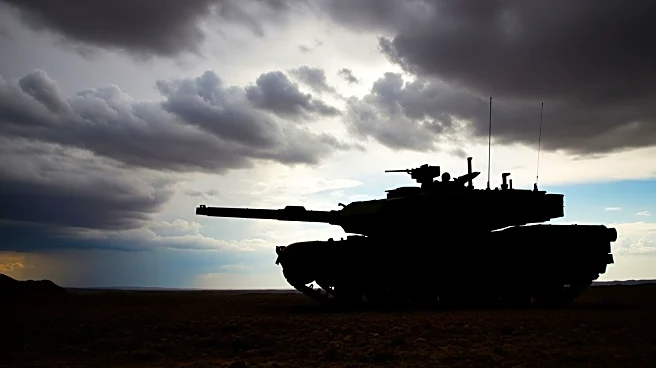What's Happening?
Defense Minister Israel Katz has issued a stern warning to Hamas, stating that Gaza will face destruction if the group does not disarm and release all hostages. This statement comes as the Israel Defense Forces (IDF) have gained control over more than half of Gaza City and have been actively demolishing terror infrastructure. Katz's comments highlight the ongoing conflict between Israel and Hamas, with the IDF making significant advances in the region. The situation in Gaza remains tense, with civilian casualties reported and hospitals struggling to provide adequate care due to the ongoing hostilities.
Why It's Important?
The warning from Defense Minister Katz underscores the critical situation in Gaza and the potential for further escalation. The destruction of Gaza would have severe humanitarian consequences, affecting thousands of civilians who are already facing dire conditions. The conflict has broader implications for regional stability and international relations, particularly involving Israel and its neighbors. The involvement of the Trump administration in planning for Gaza's governance post-war indicates a significant geopolitical interest in the outcome of this conflict. The situation also raises questions about the future of the Palestinian Authority and its role in the region.
What's Next?
As the IDF continues its operations in Gaza, the international community is likely to monitor the situation closely. Potential diplomatic efforts may be initiated to prevent further escalation and address the humanitarian crisis. The Trump administration's plan for Gaza's governance post-war could face scrutiny and opposition from various stakeholders, including Palestinian groups and international organizations. The possibility of Hamas regaining power, as suggested by former Israeli navy commander Marom, adds another layer of complexity to the future political landscape in Gaza.
Beyond the Headlines
The ongoing conflict in Gaza raises ethical and legal questions regarding the conduct of war and the protection of civilians. The destruction of civilian infrastructure and the impact on non-combatants highlight the need for adherence to international humanitarian law. The situation also reflects broader cultural and historical tensions in the region, with deep-rooted issues that continue to fuel the conflict. Long-term shifts in regional alliances and power dynamics could be triggered by the outcome of this conflict, affecting future peace efforts and stability in the Middle East.










